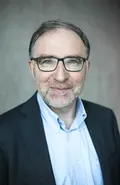Between Experience and Memory: Educational Paths of Christian Citizens of the GDR from Socialist Society to the Present Day
Duration
01/2019
- 12/2022
Duration
10/2023
- 09/2025
Funding
Bundesministerium für Bildung und Forschung (BMBF)
Project management

Team
Main project
- Dictatorship Experience and Transformation Prof. Dr. Christiane Kuller
Related projects
Different perspectives are considered for the project: On the one hand, institution-bound educational transitions will be examined on the basis of private and state records. Which actors interacted locally in social, political and ideological privileges and counter-privileges? How did constellations of enabling and preventing change against the backdrop of the transformation of educational institutions between 1961 and 1990? How did Christians create room for manoeuvre?
On the other hand, with the help of interviews with contemporary witnesses, diverse individual memories of education will be examined. What experiences are reported and how? How do the interviewees interpret the past in individual and social terms? How do they interpret their educational paths in relation to reunification in 1989/90? How do they shape their educational biographies up to the present?
Following this, the contrasts and commonalities of different ideas about education in (post)socialist society will be discussed. What everyday educational realities emerged in the dictatorship of education and welfare? What alternative understandings of education were set against this? In the course of this, the aim of the project is to explore how contradictory but equally consistent, meaningful stories about what education meant and continues to mean in socialist society emerge through diverse historical and contemporary actors.
This enables a dialogue about a shared, multi-faceted past. For while disadvantages play an important role in the memories of those affected, in retrospect many people in East Germany judge the GDR educational institutions and their individual development opportunities within them positively.
